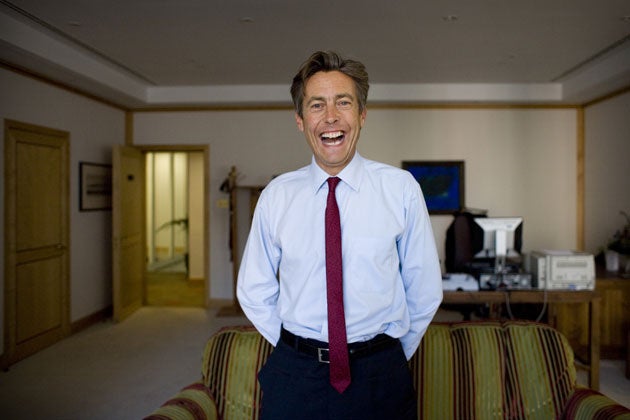TV product placement ban to be lifted

Your support helps us to tell the story
From reproductive rights to climate change to Big Tech, The Independent is on the ground when the story is developing. Whether it's investigating the financials of Elon Musk's pro-Trump PAC or producing our latest documentary, 'The A Word', which shines a light on the American women fighting for reproductive rights, we know how important it is to parse out the facts from the messaging.
At such a critical moment in US history, we need reporters on the ground. Your donation allows us to keep sending journalists to speak to both sides of the story.
The Independent is trusted by Americans across the entire political spectrum. And unlike many other quality news outlets, we choose not to lock Americans out of our reporting and analysis with paywalls. We believe quality journalism should be available to everyone, paid for by those who can afford it.
Your support makes all the difference.Product placement will be allowed on British TV programmes under new legislation announced by the Government today.
It said that continuing to ban product placement would damage the finances of the British TV industry.
Alcohol, tobacco, and food and drinks which are high in fat, salt or sugar are among the products that will not be allowed.
Product placement will also be banned from TV news, current affairs, consumer and religious programming.
In a written statement, Culture, Media and Sport Secretary Ben Bradshaw said: "We have ... decided to legislate to allow UK television companies to include product placement in programmes which they make or commission to appear in their schedules.
"Adherence to our current position in which UK TV programme-making cannot benefit at all from the income potentially to be generated by product placement would lead to continuing damage to its finances at a time when this crucial part of our creative industries needs all the support we can give it.
"It has become the more important to make this move now that every other EU member state, with the sole current exception of Denmark, has either allowed television product placement already or has expressed a firm intention to do so.
"Not to do so would jeopardise the competitiveness of UK programme-makers as against the rest of the EU, and this is something which we cannot afford to do."
Other products which programme-makers will not be able to feature are prescription medicines, gambling, smoking accessories, over-the-counter medicines and infant and follow-on formula.
The Government announced the decision, which is expected to take effect later this year, after receiving 1,480 responses to its consultation.
Product placement will be banned from any BBC licence fee-funded services.
Pact, the trade body for independent TV producers, said the decision would help the UK continue to make high quality original content as revenue from advertising continues to decline.
Pact chief executive John McVay said: "Allowing product placement will put British producers on a more level playing field with their counterparts in the US, Europe and the internet, and help to plug the funding gap that UK original programming is currently facing.
"We are pleased that we can finally move forward with product placement and look forward to working with Ofcom, to ensure appropriate guidelines and regulations are put in place as quickly as possible."
Children's Food Campaign co-ordinator Jackie Schneider welcomed the decision not to allow the placement of very salty and sugary foods.
But she said: "We are very uncomfortable that plans to allow some product placement will still go ahead.
"This creates the possibility that a future government could still allow placement of junk food through the back.
"The political parties should be warned that any attempt to reintroduce product placement of junk food in the future will be met by the same massive level of opposition that won this argument."
David Poley, chief executive of the Portman Group, which represents the major drinks companies, said: "Our advice to Government was that allowing product placement for alcohol was fraught with risk.
"Some drinks companies could have used product placement to bypass the strict advertising controls. We don't want to see unhealthy drinking portrayals on television."
Join our commenting forum
Join thought-provoking conversations, follow other Independent readers and see their replies
Comments